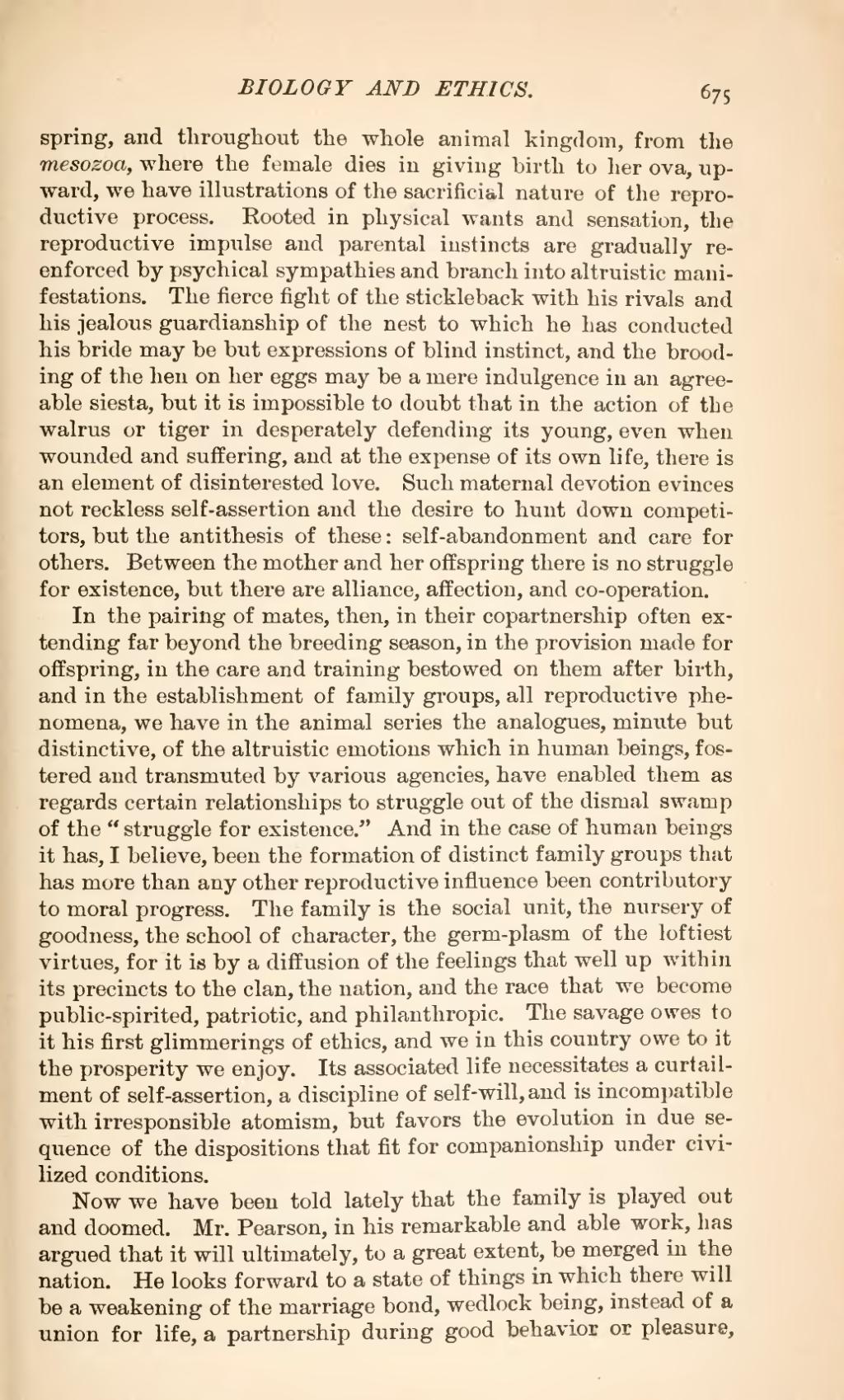spring, and throughout the whole animal kingdom, from the mesozoa, where the female dies in giving birth to her ova, upward, we have illustrations of the sacrificial nature of the reproductive process. Rooted in physical wants and sensation, the reproductive impulse and parental instincts are gradually reenforced by psychical sympathies and branch into altruistic manifestations. The fierce fight of the stickleback with his rivals and his jealous guardianship of the nest to which he has conducted his bride may be but expressions of blind instinct, and the brooding of the hen on her eggs may be a mere indulgence in an agreeable siesta, but it is impossible to doubt that in the action of the walrus or tiger in desperately defending its young, even when wounded and suffering, and at the expense of its own life, there is an element of disinterested love. Such maternal devotion evinces not reckless self-assertion and the desire to hunt down competitors, but the antithesis of these: self-abandonment and care for others. Between the mother and her offspring there is no struggle for existence, but there are alliance, affection, and co-operation.
In the pairing of mates, then, in their copartnership often extending far beyond the breeding season, in the provision made for offspring, in the care and training bestowed on them after birth, and in the establishment of family groups, all reproductive phenomena, we have in the animal series the analogues, minute but distinctive, of the altruistic emotions which in human beings, fostered and transmuted by various agencies, have enabled them as regards certain relationships to struggle out of the dismal swamp of the "struggle for existence." And in the case of human beings it has, I believe, been the formation of distinct family groups that has more than any other reproductive influence been contributory to moral progress. The family is the social unit, the nursery of goodness, the school of character, the germ-plasm of the loftiest virtues, for it is by a diffusion of the feelings that well up within its precincts to the clan, the nation, and the race that we become public-spirited, patriotic, and philanthropic. The savage owes to it his first glimmerings of ethics, and we in this country owe to it the prosperity we enjoy. Its associated life necessitates a curtailment of self-assertion, a discipline of self-will, and is incompatible with irresponsible atomism, but favors the evolution in due sequence of the dispositions that fit for companionship under civilized conditions.
Now we have been told lately that the family is played out and doomed. Mr. Pearson, in his remarkable and able work, has argued that it will ultimately, to a great extent, be merged in the nation. He looks forward to a state of things in which there will be a weakening of the marriage bond, wedlock being, instead of a union for life, a partnership during good behavior or pleasure.

